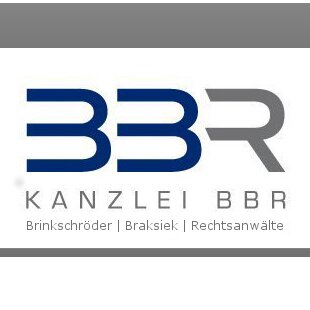Best International Trade Law Lawyers in Germany
Share your needs with us, get contacted by law firms.
Free. Takes 2 min.
Or refine your search by selecting a city:
List of the best lawyers in Germany
About International Trade Law in Germany
International Trade Law in Germany encompasses the rules and regulations that govern the trade of goods and services across international borders. This includes a wide range of legal topics such as import/export controls, tariffs, trade agreements, customs regulations, and dispute resolution mechanisms. Germany, being one of the largest economies in the world, actively participates in international trade, making it crucial for businesses involved in this field to understand the legal landscape. German International Trade Law is also influenced by European Union (EU) regulations, which can add another layer of complexity to compliance and legal proceedings.
Why You May Need a Lawyer
Engaging a lawyer who specializes in International Trade Law in Germany may be necessary in several situations, including:
Understanding and ensuring compliance with EU and German trade regulations.
Negotiating and drafting international trade agreements to protect your business interests.
Managing customs procedures and dealing with import/export licensing.
Resolving trade disputes, either through litigation or alternative dispute resolution mechanisms.
Handling cases of trade protection measures, such as anti-dumping and countervailing duties.
Navigating sanctions or embargoes that might affect business operations.
Local Laws Overview
The key aspects of local laws that are relevant to International Trade Law in Germany include:
Customs Regulations: These are detailed in the German Customs Code, aligning with EU Custom laws, outlining import duties, tariffs, and the required documentation for transactions.
Trade Agreements: Germany is part of several bilateral and multilateral trade agreements, most notably within the framework of the European Union.
Export Controls: Regulations focus on dual-use goods and technology transfers that may affect national and global security.
Intellectual Property: Rights protection in international trade is guided by laws like the German Trademark Act and the EU Intellectual Property regulations.
Compliance and Enforcement: The Bundesamt für Wirtschaft und Ausfuhrkontrolle (BAFA) oversees compliance with trade regulations and enforcement of sanctions.
Frequently Asked Questions
What are the main international trade agreements that Germany is part of?
Germany is part of the EU, which has numerous Free Trade Agreements (FTAs) and Economic Partnership Agreements (EPAs) with countries and regions around the world.
How are tariffs determined for goods imported into Germany?
Tariffs are set according to the EU's Common External Tariff policy, which applies to non-EU countries. Rates vary based on the type of goods being imported.
What are the penalties for non-compliance with international trade laws in Germany?
Penalties can include fines, the seizure of goods, revocation of licenses, and legal action which can have substantial financial implications.
Can international trade disputes be resolved out of court in Germany?
Yes, many disputes can be resolved through arbitration, mediation, or conciliation, which are popular methods given their confidentiality and efficiency.
How does Brexit affect trade between Germany and the UK?
Brexit has introduced new tariffs, customs checks, and regulatory divergences. The EU-UK Trade and Cooperation Agreement provides guidelines for this trade.
What is the role of the World Trade Organization (WTO) in Germany's trade law?
The WTO framework governs many of the rules under which Germany, as an EU member, conducts its international trade relations.
Do I need specific licenses to export from Germany?
Yes, depending on the nature of goods, especially those considered dual-use. Licensing is managed by BAFA and other relevant authorities.
Are there any trade restrictions or sanctions applicable to Germany currently?
Germany enforces EU sanctions and trade restrictions, which could involve specific countries or products. It's crucial to verify these regulations before trading.
Is foreign investment regulated in Germany?
Yes, through the Foreign Trade and Payments Act (AWG), governing non-EU/EEA investments in sensitive sectors, ensuring national security.
How can businesses protect their intellectual property during international trade?
By registering trademarks, patents, and designs both in Germany and internationally, and by including IP protection clauses in trade contracts.
Additional Resources
Several resources and organizations can be helpful for anyone seeking legal advice in this field:
Bundesamt für Wirtschaft und Ausfuhrkontrolle (BAFA)
German Customs Authority (Zoll)
Deutsche Industrie- und Handelskammertag (DIHK)
European Commission's Trade Portal
World Trade Organization (WTO)
Next Steps
If you need legal assistance in international trade law, consider the following steps:
Determine the specific area of legal help you require, such as compliance, dispute resolution, or contract negotiation.
Research law firms or legal practitioners in Germany who specialize in international trade law.
Schedule consultations to discuss your needs and gather professional insights.
Prepare documentation and information relevant to your trade activities for any legal consultations.
Consider joining trade associations or chambers of commerce for additional support and networking opportunities in the international trade arena.
Lawzana helps you find the best lawyers and law firms in Germany through a curated and pre-screened list of qualified legal professionals. Our platform offers rankings and detailed profiles of attorneys and law firms, allowing you to compare based on practice areas, including International Trade Law, experience, and client feedback.
Each profile includes a description of the firm's areas of practice, client reviews, team members and partners, year of establishment, spoken languages, office locations, contact information, social media presence, and any published articles or resources. Most firms on our platform speak English and are experienced in both local and international legal matters.
Get a quote from top-rated law firms in Germany — quickly, securely, and without unnecessary hassle.
Disclaimer:
The information provided on this page is for general informational purposes only and does not constitute legal advice. While we strive to ensure the accuracy and relevance of the content, legal information may change over time, and interpretations of the law can vary. You should always consult with a qualified legal professional for advice specific to your situation.
We disclaim all liability for actions taken or not taken based on the content of this page. If you believe any information is incorrect or outdated, please contact us, and we will review and update it where appropriate.
Browse international trade law law firms by city in Germany
Refine your search by selecting a city.












